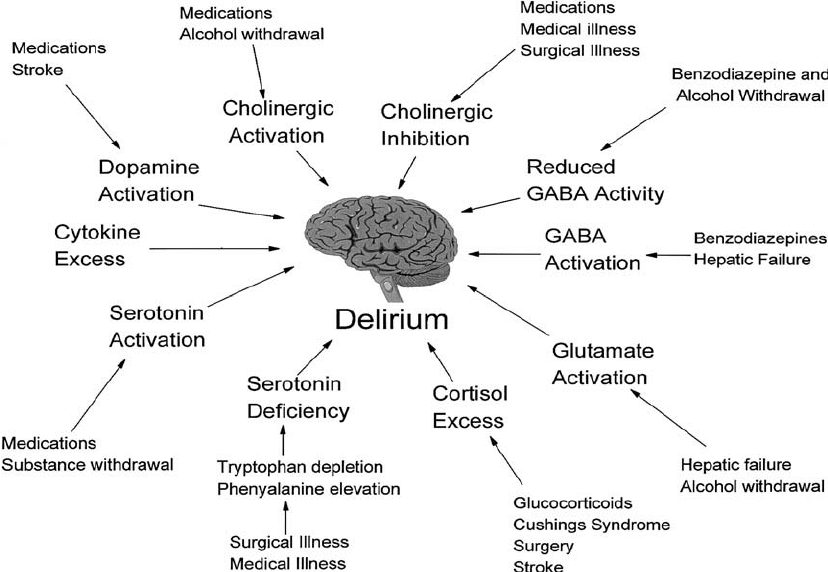Relevance: Prelims: Polity: Governance: Health & General Science
Why in news?
According to a study published in the journal, American Journal of Critical Care, Music may decrease delirium.
About
Delirium, also known as acute confusional state, is an organically caused decline from a previous baseline mental functioning that develops over a short period of time, typically hours to days.
Delirium is a syndrome encompassing disturbances in attention, consciousness, and cognition. It may also involve other neurological deficits, such as psychomotor disturbances (e.g. hyperactive, hypoactive, or mixed), impaired sleep-wake cycle, emotional disturbances, and perceptual disturbances (e.g. hallucinations and delusions), although these features are not required for diagnosis.
Causes
Delirium is caused by an acute organic process, which is a physically identifiable structural, functional, or chemical problem in the brain that may arise from a disease process outside the brain that nonetheless affects the brain.
It may result from an underlying disease process (e.g. infection, hypoxia), side effect of a medication, withdrawal from drugs, over-consumption of alcohol, or from any number of factors affecting one’s overall health (e.g. malnutrition, pain, etc.).
In contrast, fluctuations in mental status/function due to changes in primarily psychiatric processes or diseases (e.g. schizophrenia, bipolar disorder) do not, by definition, meet the criteria for ‘delirium.’
Delirium may be difficult to diagnose without the proper establishment of a person’s usual mental function. Without careful assessment and history, delirium can easily be confused with a number of psychiatric disorders or chronic organic brain syndromes because of many overlapping signs and symptoms in common with dementia, depression, psychosis, etc.
Delirium may manifest from a baseline of existing mental illness, baseline intellectual disability, or dementia, without being due to any of these problems.
Treatment
Treatment of delirium requires treating the underlying cause and multi-faceted interventions are thought to be most effective.
In some cases, temporary or symptomatic treatments are used to comfort the person or to facilitate other care (e.g. preventing people from pulling out a breathing tube). Antipsychotics are not supported for the treatment or prevention of delirium among those who are in hospital.
When delirium is caused by alcohol or sedative hypnotic withdrawal, benzodiazepines are typically used.
Delirium affects 14–24% of all hospitalized individuals. The overall prevalence for the general population is 1–2% but this increases with age, reaching 14% of adults over age 85.
Among older adults, delirium occurs in 15–53% of those post-surgery, 70–87% of those in the ICU, up to 60% of those in nursing homes or post-acute care settings.
Among those requiring critical care, delirium is a risk for death within the next year.
For more such notes, Articles, News & Views Join our Telegram Channel.
Click the link below to see the details about the UPSC –Civils courses offered by Triumph IAS. https://triumphias.com/pages-all-courses.php


